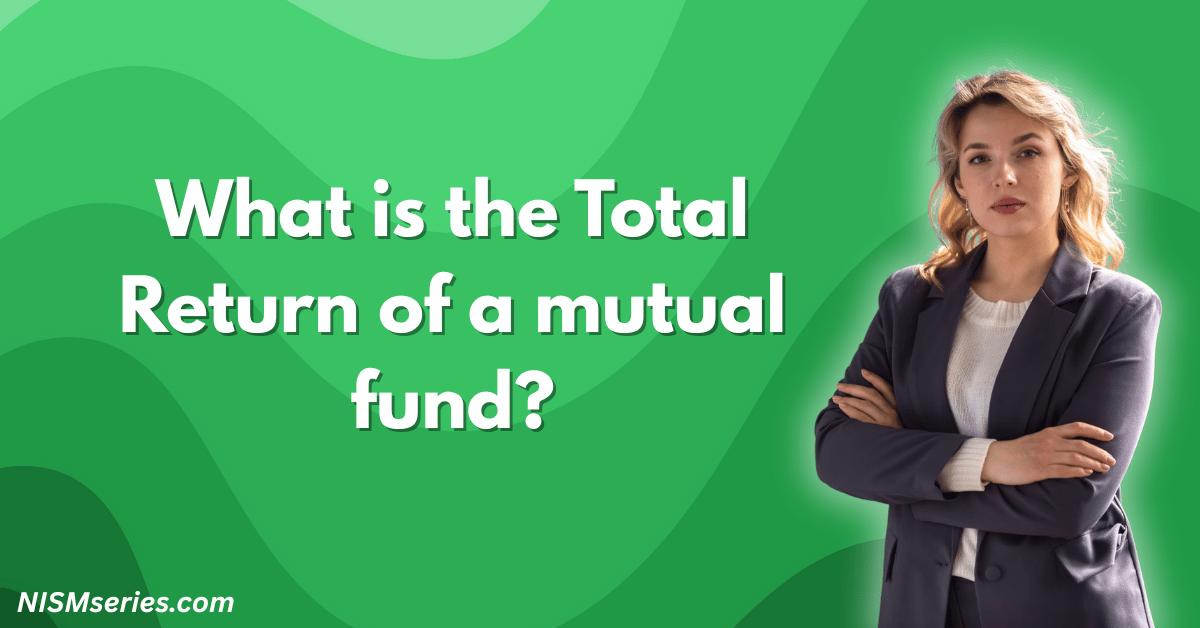A unit trust is an easy way for many people to invest their money together. All the money goes into one big fund. A pro manager handles this money for you. This is the best way to invest. A unit trust is a kind of mutual fund. It owns many different investments. When the fund makes money, you get the money.
The name “unit trust” is very simple. You invest by buying “units.” Each unit is a small part of all the investments in the fund. You must buy or sell your units at the current price. This price is called the Net Asset Value (NAV). This system is great. You can take your money out easily. You always know how much your investment is worth.
Table of Contents
Understanding Unit Trusts
Unit Trust Definition and Structure
A unit trust has a very strong structure to keep it safe. A trustee holds all the fund’s assets. This keeps your money safe. An asset management company chooses the investments. This system makes sure everything follows the rules from SEBI.
These funds started with a law in 1963. The law made the rules. The goal was to help normal people save and invest money. Before this, only rich people could own many investments. Unit trusts made it possible for everyone to invest in a smart way.
How Do Unit Trusts Work?
This is how a unit trust works. The fund’s total money is split into equal parts. These parts are called units. Every unit is the same. When you invest money, you get units for the current NAV price.
The fund buys many things, like stocks and bonds. They calculate the NAV every day. The price shows how much one unit is worth after paying for any costs.
Key Players in Unit Trust Management
Fund Managers
Professional fund managers are the most important part of a unit trust. They are experts. They pick good investments and manage risk. These pros study the market. They choose the best assets to help the fund meet its goals.
SEBI has firm rules for fund managers. They must have the right skills to manage your money. A fund manager is an expert and must always keep learning.
Trustees
Trustees are like guards for your money. They hold the fund’s assets safely for all investors. They watch the fund managers. They make sure everyone follows the rules and the investment plan.
The trustee system gives you strong protection. The trustee is not part of the fund manager’s company. Trustees can step in if a fund manager does anything wrong.
Unit Holders
Unit holders are the investors. That means you. You are an owner of the fund’s assets. You get a share of the profits. You can also vote on big choices for the fund. You can sell your units any day at the NAV price, but sometimes you have to pay a fee to leave early.
You will always get reports. The reports show what the fund owns and how it is doing. This is how the fund stays honest with you.
Types and Categories of Unit Trusts
Equity Unit Trusts
Equity unit trusts mainly buy stocks in companies. The goal is to make your money grow over a long time. These funds must keep most of their money in stocks to get better tax benefits.
Growth-Focused Equity Funds
These funds are the best for big growth. They buy stocks in companies that are making money very fast. These are companies with new ideas and strong finances. The goal is to make your money grow, not to give you income now.
The best way to do this is to find good stocks early. Fund managers study everything to build the best group of stocks.
Dividend-Paying Equity Funds
These funds are for people who want regular income. They invest in companies that often pay dividends. A dividend is a share of the company’s profits. This gives you steady money. Your investment can also grow.
Two things are important here. The company must be strong. The dividend payment must be steady. Fund managers work to get you income now and keep your money safe for the future.
Fixed Income Unit Trusts
Fixed income unit trusts invest in debt. This includes bonds from the government and from companies. These funds give you a steady income. They are much safer than stock investments.
Government Bond Funds
These funds only buy bonds sold by the government. They are the safest way to protect your money and earn a regular income. This makes them perfect for investors who do not like risk.
The main risk is from interest rates changing. When rates go up, bond prices go down. A good manager knows how to handle this risk.
Corporate Bond Funds
These funds buy debt from private companies. They pay more money than government bonds. But they have more credit risk. You must study this risk before you invest.
Fund managers check if a company is healthy. The only way to lower risk is to invest in many different companies.
Balanced Unit Trusts
Balanced unit trusts hold a mix of stocks and debt. They usually put about half the money in each. These funds give you both safety and growth. This is perfect for investors who do not want a lot of risk.
Fund managers change the mix of stocks and debt depending on the market. They work to keep the fund balanced.
Money Market Unit Trusts
Money market unit trusts buy very short-term debt. Their only job is to keep your money safe and easy to get.
The rules for taking money from these funds can change. For overnight funds, you can now take out your money online until 7:00 PM.
Sector-Specific Unit Trusts
These funds focus on only one industry, like technology. They let you invest in just that one area. But they are much riskier because all your money is in one place.
These funds follow trends in that one industry. The fund managers are experts in that specific area.
Benefits and Risks of Unit Trust Investment
Professional Fund Management Advantages
Unit trusts give you an expert fund manager. You cannot do this by yourself. Fund managers have better information. They pay lower fees to buy and sell.
They watch your investments all day. They manage risk and make smart moves. You do not need to do anything. This expert help is very important, especially when the market is changing a lot.
Diversification and Risk Reduction
These funds let you own small parts of many investments with little money. Spreading your money out like this is the only way to lower the risk of owning just one or two stocks.
You can also invest in funds from other countries. But there are rules about how much you can invest outside your own country.
Market Volatility and Investment Risks
Unit trust investments move with the market. The NAV price goes up and down. Equity funds move more than debt funds.
Big problems in the economy, like inflation, affect all unit trusts. The effect is different for each fund depending on what it owns.
Management Fees and Expense Ratios
Unit trusts charge you fees to manage your money. These fees lower the money you make. The Total Expense Ratio (TER) is usually between 0.5% and 2.5% each year. The fee depends on the kind of fund.
SEBI rules say that all fees must be clear to you. There are limits on how much a fund can charge. You must check the fees before you invest.
Liquidity and Redemption Considerations
You can get your money out of most funds on any business day. Some funds charge an “exit load” fee if you leave too soon. Liquid and overnight funds give you your money the fastest.
The cut-off times for taking out money are different for online and offline requests.
Unit Trust Investment Process
How to Start Investing in Unit Trusts
To invest, you need to do a few things. You must complete your KYC. You need a PAN card. You also need to link a bank account. You can invest directly with the fund company or use a helper called a distributor.
The smallest amount you can invest is different for each fund. With a SIP, you can start with just ₹500 a month. Some special SIPs let you start with ₹250. NFOs are a chance to invest in new funds when they first start.
Net Asset Value and Unit Pricing
The Net Asset Value (NAV) is the price of one unit after all costs are paid. They calculate the NAV every day after the market closes. That NAV price is used for all sales the next business day.
A cut-off time decides which day’s NAV you get. For most funds, the time is 3:00 PM. For liquid funds, it is 1:30 PM. If you invest after this time, you get the next day’s NAV. This is a very strict rule.
Unit Trust Redemption Process
Online Redemption Methods
Selling your units online is the easiest way. You can use the fund company’s website or app. You log in, choose your fund, and say how much you want to sell.
The steps are easy. Show who you are. Pick the fund. Say how much to sell. Confirm it. Then the money starts moving to your bank. You will get your money in 2-3 business days for most funds.
Offline Redemption Procedures
To sell your units offline, you must fill out a paper form. You give it to the fund company’s office. The form must have your account number and bank information.
All the owners must sign the form. The money only goes to the first owner’s bank account. This way is always slower than online.
FAQ
Are Unit Trusts Safe for Beginners?
Yes, unit trusts are safe for new investors. They are protected by SEBI rules. An expert manages the money, so you do not have to make hard choices. You own many different investments at once.
What is the Minimum Investment Amount?
The minimum amount is different for each fund. A one-time investment is usually ₹500 to ₹5,000. SIPs let you start with just ₹500 a month. Some special SIPs let you start with ₹250.
How Long Should I Hold Unit Trust Units?
How long you should invest depends on your goals and the fund. You must hold equity funds for at least 3-5 years. This helps you get through market ups and downs. Debt funds are good for shorter amounts of time.
Can I Withdraw My Money Anytime?
You can sell your units on any business day. But getting your money takes time. Liquid funds are the fastest. Equity funds take longer.
Do Unit Trusts Guarantee Returns?
No, unit trusts never promise you will make money. How they do depends on the market. What a fund did in the past tells you nothing about the future. You can lose money.



















